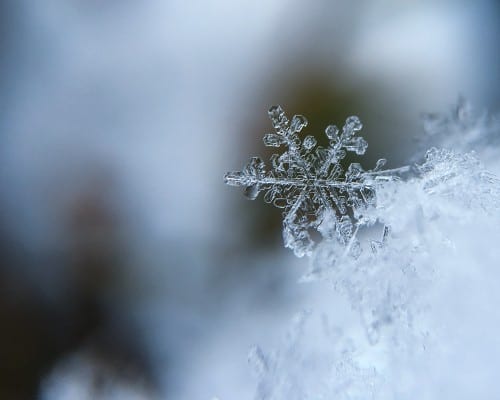It’s the most wonderful time of the year! When you have a working heating system, that is.
Winter is coming, and with that in mind, homeowners should pay close attention to their system and its efficiency. Although Arizona winters may not be as severe as other regions in the US, we still rely on heating systems to create an enjoyable home environment.
Why not consider how your HVAC system can become more energy-efficient during cooler months? This not only will lower your energy consumption, save you money, and help the planet!
So, let’s dive in and discuss some useful strategies to keep your HVAC unit operating at peak performance this winter season so that when caroling time comes around, you’ll have a warm home to come back to!
Understanding Winter HVAC Needs
To create a warm, toasty indoor environment in the winter season, it’s good to know what your system needs. As temperatures decrease, heating systems take on greater importance, as the only thing keeping people warm and cozy during the cold months isn’t just good cheer – it’s the heat from their heaters.
Colder weather presents your HVAC system with unique challenges, including increased energy consumption and an increase in heating component workload — leading to an increase in breakdowns if left unmanaged.
Proper insulation
Winter brings colder temperatures and harsher weather conditions, requiring extra heating and insulation measures. Without proper insulation, the heat from your HVAC unit will escape, leading to high energy consumption and an overburdened system.
Insulated homes retain heat more effectively, relieving the strain on your HVAC system and creating potential savings through energy conservation.
Optimizing your HVAC system for winter not only ensures a cozy, warm home but also brings tangible benefits. It can reduce the chance of unexpected breakdowns and costly repairs and extend the overall lifespan of your system.
Another plus? Insulating your home helps keep it cooler during the sweltering Arizona summers – a win-win.
Temperature control and thermostat usage
An efficient HVAC system will keep your home comfortable, save money, and reduce energy waste. Adjusting your thermostat according to your daily activities can maximize heating system efficiency.
Setting lower heat settings when no one is home or when you’re asleep at night can save considerable money in energy costs. Not only will you decrease your carbon footprint, but you’ll also extend your system’s lifespan.
Plus, you’ll see the savings on your heating bill — a decrease of just one degree for eight hours can save you up to 1%.
Heater maintenance improves its functionality
Booking maintenance checks during the winter months is important as a preventative measure.
Here’s why:
- Boosts longevity: Routine inspections and maintenance can help extend the lifespan of your HVAC system.
- Maintains efficiency: A well-maintained heater operates more efficiently, saving you money on energy costs and reducing your carbon footprint.
- Keeps you comfortable: Regular maintenance helps your system deliver consistent heating, even on the coldest winter nights.
- Increases safety: Regular inspections can nip potential safety issues in the bud before they become serious problems (ex., carbon monoxide leaks).
How to replace a furnace filter
Your heater’s functionality relies on the cleaning and replacement of your HVAC filters. Let’s break it down into an easy-to-follow guide:
- Turn off the system: Always shut your HVAC system off before changing the air filter.
- Locate the filter: Filters are usually located in the air return duct or blower compartment.
- Check the filter: Look for signs of dirt build-up. If it looks dirty, replace it.
- Install the new one: Make sure the new filter is facing the correct direction (the arrow on the side should point toward the furnace).
- Switch the system back on: Once the new filter is set properly, remember to turn your HVAC system back on.
Most importantly, schedule regular inspections with a professional HVAC technician – it’s critical to the health of your system. These inspections can catch small issues before they turn into significant problems, saving you time, expenses, and stress.
Invest in a humidifier or a dehumidifier
Humidity plays a huge role in indoor comfort. Get the best indoor climate with a humidifier or dehumidifier. Most regions in Arizona are drier, and winters tend to be even drier – consider a humidifier to add humidity.
Humidifiers add moisture to the air, combating the dryness caused by heating. They’re a beneficial tool in winter when indoor air tends to be dry.
Keep in mind that excessive humidity can be just as problematic as low humidity. While most of Arizona is drier, certain spots are humid and may need a dehumidifier, so ask a professional technician for advice. Therefore — it’s crucial to monitor humidity levels and adjust the use of your humidifier as necessary.
Dehumidifiers work to decrease humidity in the air, making them useful in damp areas.
Additional energy-saving strategies to optimize HVAC performance during winter
Additional effective energy-saving strategies include the following.
- Seal air leaks: Check your home for areas where cold air might be seeping in and warm air might be escaping. Use weatherstripping or caulk to seal these leaks.
- Use ceiling fans: Run your ceiling fans in reverse to push warm air down and circulate it throughout the room. You’ll notice an improvement in circulation as a result.
- Clear vents and radiators: Keep your vents and radiators clear from furniture or curtains to allow air to circulate freely.
- Upgrade your HVAC system: If your current unit is over 10 years old, consider upgrading to a more energy-efficient HVAC system. While initial investment may be higher, over time, the savings from reduced energy use may make this upgrade worth its while.
- Use space heaters wisely: Rather than heating an entire house with space heaters, consider placing them only in those rooms where regular activity takes place.
- Choose efficient appliances: When replacing old appliances, opt for energy-efficient models with a higher Energy Star rating. These products use less energy and can help lower your energy bills.
Have questions about your HVAC efficiency? Contact River Valley!
Implementing energy-saving strategies and maintaining your HVAC system can significantly lower energy consumption and costs, saving you money and protecting the planet.
Using humidifiers and dehumidifiers effectively, inspecting regularly, opting for energy-efficient appliances, and proper insulation are all great ways to optimize your HVAC system’s functionality, which can lead to a more pleasing living space.
Remember — if you need a furnace servicing appointment or a consultation, River Valley Air Conditioning Inc. is just a call away!
Schedule an appointment and contact us today!

